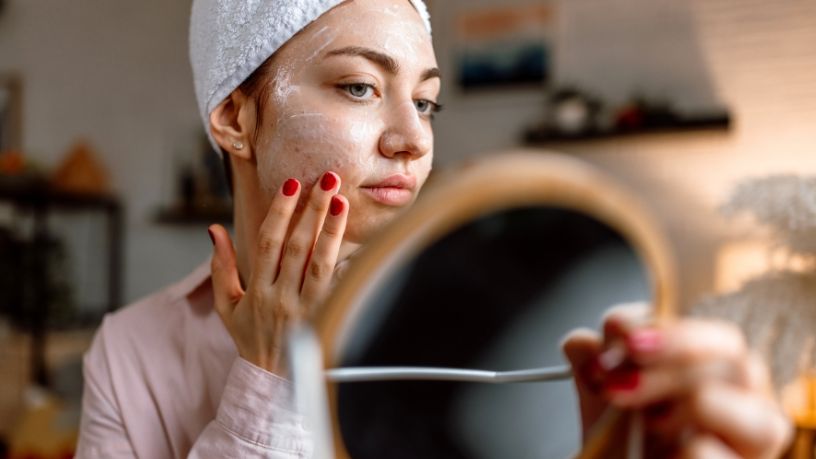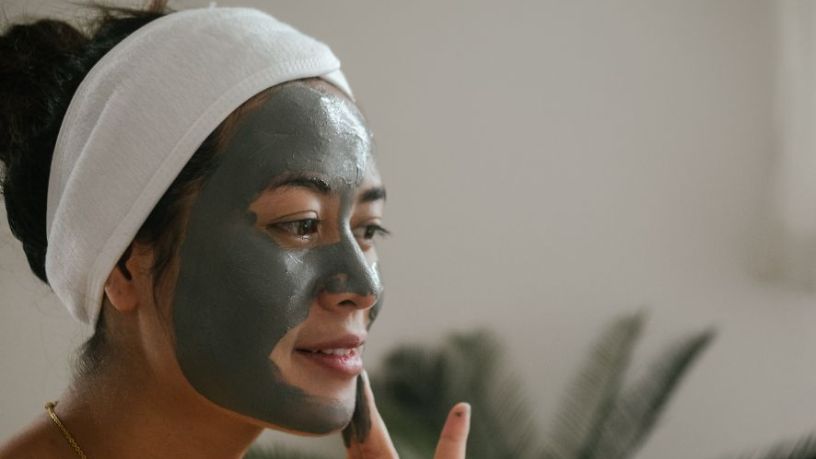While everyone has a skin type (normal, dry, oily, etcetera), not everyone will suffer from a skin condition such as dehydrated skin.
On this page
Key takeaways
Climate, health conditions and the products we use on our face can all impact how our skin looks and feels.
If your skin is reacting, it’s a good idea to pull back on using any ‘active’ products (just don’t forget the sunscreen!).
Does your skin look red or feel tight? Do fine lines seem more obvious?
It could be dry or dehydrated. But how can you tell the difference and what can you do to improve things?
Dermal therapist Yads Cauchi says while some of the symptoms of dry and dehydrated skin are the same, the problem is different.
Dry versus dehydrated: What's the difference?
When it comes to skin type, it;s actually not that complicated. Simply put, dry skin lacks oil, while dehydrated skin lacks water.
A lot of people with dehydrated skin tend to think that they've got dry skin, Cauchi explains. Dry skin is a skin type so it's always there, whereas dehydrated skin is a skin condition.
Dehydrated skin tends to come and go and can happen to anyone. You can even be dehydrated and oily at the same time.
Symptoms of dry skin and dehydrated skin
Dry skin commonly creates fine lines and cracks, and is:
- flaky
- rough
- itchy
- tight
- scaly or peeling.
Dehydrated skin can have an uneven skin tone and more pronounced wrinkles, and can be:
- red
- tight and uncomfortable (even after moisturising)
- congested
- oily and shiny
- dull
- inflamed.
What causes dry skin?
Dry skin, also known as xerosis or xeroderma, can be caused by health conditions such as eczema, or external factors such as a change in weather, very cold or hot temperatures, age, allergies, or sun damage.1
Dry skin can also be caused or exacerbated by overusing some skincare products.
What causes dehydrated skin?
While it might sound like a case of not drinking enough water, Cauchi says dehydrated skin is often caused by external factors, including:
- using harsh cleansers
- overusing acids
- using the wrong skincare
- staying in hot showers for too long
- using products with high levels of alcohol
- living in a climate with dry air and low humidity
- drinking too much alcohol or caffeine.
“Using too many ‘actives’, over exfoliating and even changes in weather can cause dehydration. In winter a lot of people end up with dehydrated skin,” says Cauchi.
How to treat dry or dehydrated skin
Logically we might assume that water is a fix all for dry or dehydrated skin, but skin experts disagree. While drinking water and keeping your body hydrated is always a good idea (we need water for every function our body performs, including digestion and joint and tissue repair) simply using water on the face will not promote healthier skin.2
While water is very good for your skin and overall health, Cauchi says there’s not a lot of evidence to prove that water actually hydrates the skin.
“Dehydrated skin also needs topical hydration. That includes hyaluronic acid serums and perhaps a ceramide rich moisturiser to help your skin hold on to the hydration,” she says.
The treatment for dry skin is similar.
“For both dry and dehydrated skin, you want to make sure you're using humectant-based products, so that means a serum that's going to help draw moisture from the air, that's going to properly hydrate the skin,” says Cauchi. “Then you want to be using a moisturiser on the top that's going to help lock it all in.”
If you have dry skin, avoid using anything too harsh or stripping and be sure to replenish your skin with oil-rich products.
“Dehydrated skin wants water, and you need products with hyaluronic acid or glycerine to help with that,” says Cauchi.
Because dehydrated skin affects all skin types, it’s possible to have both dry and dehydrated skin at the same time. If that sounds like you, look for products to replenish both water and oil.
If you’re unsure about your skin type, condition, or the best treatment for you, it’s a good idea to see a dermal therapist.

At Bupa, trust is everything
Our health and wellbeing information is regularly reviewed and maintained by a team of healthcare experts, to ensure its relevancy and accuracy. Everyone's health journey is unique and health outcomes vary from person to person.
This content is not a replacement for personalised and specific medical, healthcare, or other professional advice. If you have concerns about your health, see your doctor or other health professional.
You might also like...
What is skin cycling?
If you’ve been scrolling through your socials lately, you might have noticed a new skincare routine making the rounds. But what exactly is skin cycling?
Have you been greenwashed?
Natural and sustainable products are gaining popularity. But how can we know if a brand is the real eco deal or just green washing?
How to choose the perfect sunscreen
A good sunscreen is one of the most important pieces of a flawless Aussie beauty routine, but which kind works best for your skin?
7 common skincare myths
From retinols to acids and vitamins to treatments, skincare can feel overwhelming and confusing. Here are 7 common skincare myths and tips.





